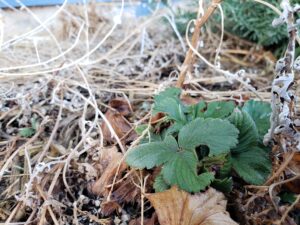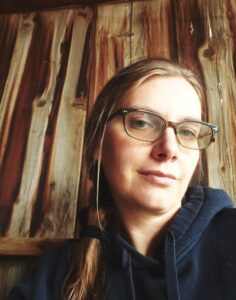 I thought the last snowstorm we got might be the last. Actually, I felt like the last storm might be the last, but how I feel and what the weather does are two different things entirely. Maybe it is more accurate to say that I hoped the last storm would be the last, that we were on the road to spring, that I could finally get on with moving forward and starting to build again. I’m tired of storms—the literal ones and the metaphorical ones, and I guess a big part of me is waiting for things in the world to change so that I can stop fighting so hard to do so little. In more ways than one, I’ve been waiting for spring.
I thought the last snowstorm we got might be the last. Actually, I felt like the last storm might be the last, but how I feel and what the weather does are two different things entirely. Maybe it is more accurate to say that I hoped the last storm would be the last, that we were on the road to spring, that I could finally get on with moving forward and starting to build again. I’m tired of storms—the literal ones and the metaphorical ones, and I guess a big part of me is waiting for things in the world to change so that I can stop fighting so hard to do so little. In more ways than one, I’ve been waiting for spring.
If you’re a gardener, you know the spring anticipation game well. It starts in January when seed catalogs start to fill your mailbox. You’re thinking about the coming year and all you plan to do with it, especially in the garden. What new plants will you buy? What new skills will you learn? How will you make this year better than the last and the one before and the one before? At least that’s how it is for me. The calendar turns over and I think that even if I can’t garden right now, at least I can plan for gardening. At least I can get ready for the next stage of life. I can get ready to sow what I hope to harvest later.
But it’s too soon.
In Flagstaff, at the beginning of January, winter has only just gotten started. For those of us dreaming of green and lovely things, they feel as far away as those all warm gardens flourishing in the southern hemisphere. You have to do the basics. You have to buy seeds when they come up for sale or risk missing your purchasing window. You have to make decisions: number of plants, which varieties, where they’ll go.
I try to do this in as detached a way as possible. After a few years of getting invested too early and letting those warm false-spring weekends fool me, I want to temper my expectations. However lovely a few 50 degree days in February might be, it is still winter. May is still a long way off. The only thing I can really do with those days is wait.
I’ve been waiting a lot lately. Waiting for the ones I love to weather their illnesses and get better. Sometimes waiting for them to die. Waiting to focus again on my own life and get back to the kind of growth I took for granted before being stunted by a years-long litany of hardship.
Perpetual waiting is its own kind of hardship. When what you do in the future is contingent upon what happens now, you can’t make plans. Or if you do, you have to be prepared for them to fall apart. It’s paralyzing. Why bother planning what will never come to fruition? Why plant seeds that you won’t have time to water or grow food that you won’t have time to harvest?
I think I’ve been looking at planning and doing things all wrong. I think I just have to do the things—to plant the seeds without knowing the future.
In Flagstaff, sometimes you have a lovely day in the middle of winter. Sometimes it snows in June. In the best of circumstances, one will be prepared to take advantage of both conditions—ready to take a spontaneous hike on an unexpected clear, warm day, and ready to rush around covering up fresh young summer growth, protecting it from the sudden cold. No one does this perfectly. We all find ourselves caught off-guard. We have all sat indoors in front of a screen when we might rather be outside. And those of us who grow plants outdoors always lose some, if not to the weather, to some other unforeseen condition—pest infestation, disease, drought…. The list is practically endless.
We can’t know what will come. We just have to start and hope for the best—to do our best (however much or little that may be) and hope that we have it within ourselves to enjoy the better days when they come along.
Maybe I need to anticipate a little less. To plan a little less. To draw fewer garden diagrams, and find something else to do until the snow subsides. To stop waiting until the world will let me garden and just do… something.
I guess what I’m trying to teach myself is that it’s okay to be tired of storms—they are cold and harsh and exhausting—but they will come no matter what we do. Maybe I can’t garden in a snowstorm, but just because the world isn’t green doesn’t mean it’s stopped. Even in the depths of winter, I can breathe, I can sing, I can cook, I can make things—I can even admire the snow once in a while.
There will be more green days, and there will be more snow. Spring will come again, unmoved by my having waited all winter—or not having waited. It will progress into summer then fall then winter again, and I will have to progress along with it. I will grow, whether I plan for it or not.

